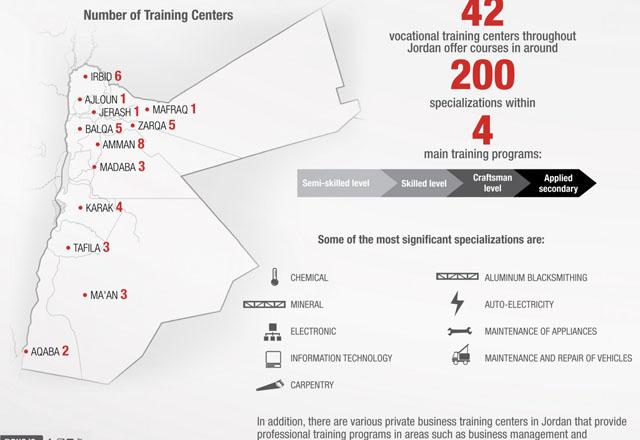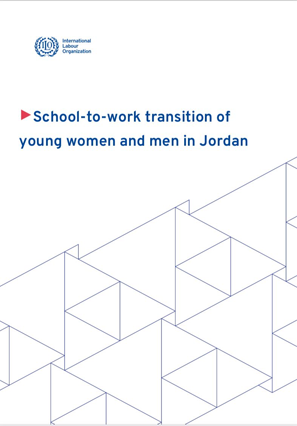You are here
Less than 3% of young Jordanians have formal vocational training — study
By Hana Namrouqa - Jul 14,2014 - Last updated at Jul 14,2014

AMMAN — Most young Jordanians are uninterested in technical vocational education and training (TVET) and are unaware of what TVET centres have to offer, according to a report released Monday.
The “Labour Market: The Case of Vocational Training in Jordan” report said a tiny minority of less than 3 per cent of Jordanian youths had formal vocational training and less than 10 per cent had some form of vocational training.
The report, prepared by the UNDP and funded by the Japanese government, also concluded that a minority of 15 per cent of businesses employ TVET-trained workers, mainly small businesses employing one to three workers.
The study included face-to-face interviews with 1,998 young people between the ages of 16 and 26, and 2,252 business entities across various economic activities in Irbid, Mafraq, Ajloun, Jerash, Balqa, Karak, Tafileh and Maan.
In addition, the survey included telephone interviews with 58 hotel establishments.
The findings of the study show a major concentration of small businesses in Irbid and Balqa, which highlights the imbalance of economic reward in the country, beside the fact that the overwhelming majority of businesses are small and self-owned.
Despite the lack of interest in TVET, the study pointed to a growing interest in entrepreneurial initiatives, such as establishing a business or shops in the fields of personal care, computer and communications, traditional trades or car repair.
On the demand side, the study confirmed the gender disparity in the workforce and that over half of the employed youths work as monthly, weekly or daily wage earners, exposing them to a lack of labour protection as well as low pay, which doesn’t exceed the minimum wage in 40 per cent of the cases.
“Only 10 per cent of the surveyed businesses were in need of additional labour, which doesn’t bode well for either TVET graduates or employment drives,” the study concluded.
The study said work ethics and life skills are equally important criteria for employers as technical know-how and experience, and that previous experience in the form of internships, short-term placements and on-the-job training are key to finding suitable employment.
The report proposed several recommendations to reform the TVET system in Jordan, including policy recommendations that relate to legal protection of wage earners, minimum pay structures for graduates and trainees, career guidance and entrepreneurial assistance.
The study also highlighted the importance of raising awareness of youths and parents on the benefits of TVET, training centres and their offerings and the potential of vocational careers and occupations.
UNDP Country Director Zena Ali-Ahmad said the survey was conducted with the aim of reaching a better understanding of labour market dynamics, especially with regards to the supply and demand of vocational education and training.
She expressed hope that the results of the study will be used by the various national stakeholders to better unleash the potential of vocational training as an important pathway to employment.
Related Articles
AMMAN — As the ongoing COVID-19 pandemic continues to wreak havoc on the education sector, many disadvantaged children and youth struggle to
AMMAN — Around 25 professionals of the technical and vocational education training (TVET) sector on Tuesday took part in a training needs as
AMMAN — The Kingdom’s young population has been “disproportionately” impacted by the Jordanian economy’s failure to create job opportu


















